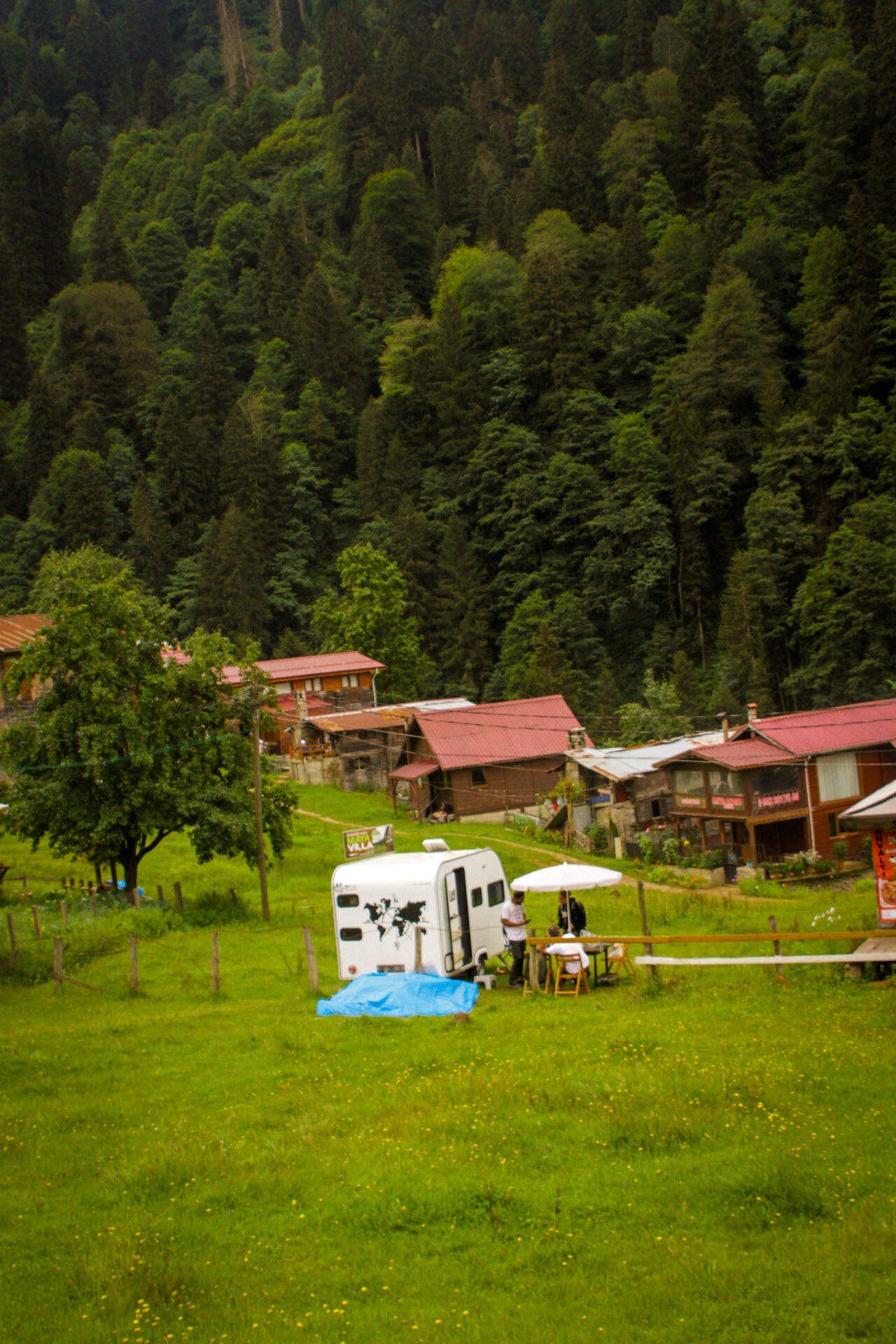Camping is a great way to disconnect from the hustle and bustle of city life and connect with nature. However, it’s important to also consider the impact we have on the environment while enjoying the great outdoors. Luckily, there are plenty of eco-friendly camping sites in England that allow us to enjoy nature without harming it. From solar-powered showers to composting toilets, these sites are leading the way in sustainable tourism. In this article, we’ll explore the best eco-friendly camping sites in England for those who want to camp in style while being kind to the environment.
Introduction to Eco-Friendly Camping and its Benefits
Camping is a popular outdoor activity that allows people to connect with nature and escape from the hustle and bustle of city life. However, traditional camping practices can have a negative impact on the environment. From leaving behind litter to burning non-sustainable fuel, campers can contribute to the degradation of natural resources. Eco-friendly camping, also known as green camping, is a way to enjoy the great outdoors while minimizing the environmental impact.
Eco-friendly camping involves using sustainable camping gear, practicing responsible outdoor behavior, and choosing campsites that prioritize eco-friendliness. In addition to reducing negative environmental impacts, eco-friendly camping has several benefits. It allows campers to experience nature in a responsible and sustainable way, promotes a healthier lifestyle, and encourages a deeper appreciation for the environment.
In this article, we will explore the best eco-friendly camping sites in England, highlighting their sustainability practices and unique features. We will also provide tips for eco-friendly camping, including waste management, energy conservation, and responsible outdoor behavior. Whether you are a seasoned camper or a first-time adventurer, eco-friendly camping is a great way to explore the beauty of England’s natural landscapes while preserving them for future generations.
Criteria for Selecting Eco-Friendly Camping Sites
When selecting an eco-friendly camping site in England, there are several factors to consider. These factors will help you choose a campsite that is committed to sustainability and minimize your environmental impact. Here are some criteria to keep in mind:
1. Sustainable Facilities
Look for campsites that have sustainable facilities such as composting toilets, solar-powered showers, and recycling bins. These facilities reduce the impact of camping on the environment and promote sustainable practices.
2. Energy Conservation
Choose campsites that prioritize energy conservation. These campsites may have policies in place such as limiting generator use, encouraging the use of solar-powered lamps and charging stations, and providing firewood from sustainable sources.
3. Waste Management
Select campsites that have effective waste management systems in place. These campsites may have composting facilities, recycling centers, and policies that encourage campers to pack out their trash.
4. Location
Choose a campsite that is located in a natural environment and away from urban areas. This reduces the impact of camping on wildlife and promotes a deeper connection with nature.
5. Sustainability Practices
Look for campsites that have implemented sustainable practices, such as using organic and locally sourced food and reducing water usage. These practices demonstrate a commitment to sustainability and environmental responsibility.
By considering these criteria when selecting an eco-friendly camping site, you can ensure that you are doing your part to minimize your environmental impact and contribute to a more sustainable future.
Top Eco-Friendly Camping Sites in England
England is home to some of the most stunning natural landscapes in the world, and there are many eco-friendly camping sites that allow you to experience them in a sustainable way. Here are some of the best eco-friendly camping sites in England:
1. Ecocamp Glenshee, Scotland
Located in the heart of the Scottish Highlands, Ecocamp Glenshee is a sustainable campsite that offers stunning views of the surrounding mountains. The campsite features eco-friendly facilities such as composting toilets and solar-powered showers, and offers activities such as hiking, mountain biking, and wildlife watching.
2. Embercombe, Devon
Embercombe is a sustainable campsite located in the rolling hills of Devon. The campsite offers a range of activities such as bushcraft, yoga, and meditation, and features eco-friendly facilities such as composting toilets and solar-powered showers. The campsite also has a farm that produces organic food for campers.
3. The Quiet Site, Lake District
The Quiet Site is a sustainable campsite located in the picturesque Lake District. The campsite features eco-friendly facilities such as composting toilets and solar-powered showers, and offers activities such as hiking, fishing, and kayaking. The campsite also has an on-site bar and restaurant that serves locally sourced food.
4. Wild Boar Wood, Sussex
Wild Boar Wood is a sustainable campsite located in the heart of Sussex. The campsite features eco-friendly facilities such as composting toilets and solar-powered showers, and offers activities such as bushcraft, campfire cooking, and wildlife watching. The campsite also has a shop that sells locally sourced food and camping gear.
5. Cae Du, Snowdonia
Cae Du is a sustainable campsite located in the stunning Snowdonia National Park. The campsite features eco-friendly facilities such as composting toilets and solar-powered showers, and offers activities such as hiking, mountain biking, and rock climbing. The campsite also has an on-site cafe that serves locally sourced food.
These eco-friendly camping sites offer a unique and sustainable way to experience the natural beauty of England. From composting toilets to locally sourced food, these campsites prioritize sustainability and promote responsible outdoor behavior.
Detailed Review of Each Camping Site, Including Facilities, Activities, and Sustainability Practices
To help you choose the best eco-friendly camping site in England, we have provided a detailed review of each of the top sites mentioned above. This review includes information about the facilities, activities, and sustainability practices of each campsite.
1. Ecocamp Glenshee, Scotland
Facilities: Ecocamp Glenshee features eco-friendly facilities such as composting toilets and solar-powered showers. The campsite also has a communal cooking area and a campfire pit.
Activities: The campsite offers a range of activities such as hiking, mountain biking, and wildlife watching. There are also several nearby attractions such as the Cairngorms National Park and the Glenshee Ski Centre.
Sustainability Practices: Ecocamp Glenshee is committed to sustainability and environmental responsibility. The campsite uses renewable energy sources, encourages waste reduction, and promotes responsible outdoor behavior.
2. Embercombe, Devon
Facilities: Embercombe features eco-friendly facilities such as composting toilets and solar-powered showers. The campsite also has a communal kitchen and dining area, and offers organic food produced on-site.
Activities: The campsite offers a range of activities such as bushcraft, yoga, and meditation. There are also several nearby attractions such as the Dartmoor National Park and the beaches of South Devon.
Sustainability Practices: Embercombe is committed to sustainability and environmental responsibility. The campsite uses renewable energy sources, promotes sustainable food production, and encourages waste reduction.
3. The Quiet Site, Lake District
Facilities: The Quiet Site features eco-friendly facilities such as composting toilets and solar-powered showers. The campsite also has an on-site bar and restaurant that serves locally sourced food.
Activities: The campsite offers a range of activities such as hiking, fishing, and kayaking. There are also several nearby attractions such as the Lake District National Park and the Ullswater Steamers.
Sustainability Practices: The Quiet Site is committed to sustainability and environmental responsibility. The campsite uses renewable energy sources, promotes sustainable food production, and encourages waste reduction.
4. Wild Boar Wood, Sussex
Facilities: Wild Boar Wood features eco-friendly facilities such as composting toilets and solar-powered showers. The campsite also has a communal cooking area and a campfire pit.
Activities: The campsite offers a range of activities such as bushcraft, campfire cooking, and wildlife watching. There are also several nearby attractions such as the Bluebell Railway and the South Downs National Park.
Sustainability Practices: Wild Boar Wood is committed to sustainability and environmental responsibility. The campsite uses renewable energy sources, promotes sustainable food production, and encourages waste reduction.
5. Cae Du, Snowdonia
Facilities: Cae Du features eco-friendly facilities such as composting toilets and solar-powered showers. The campsite also has an on-site cafe that serves locally sourced food.
Activities: The campsite offers a range of activities such as hiking, mountain biking, and rock climbing. There are also several nearby attractions such as the Snowdonia National Park and the Llyn Peninsula.
Sustainability Practices: Cae Du is committed to sustainability and environmental responsibility. The campsite uses renewable energy sources, promotes sustainable food production, and encourages waste reduction.
These eco-friendly camping sites offer a range of facilities and activities that allow you to experience the natural beauty of England in a sustainable way. By prioritizing sustainability and environmental responsibility, these campsites are helping to preserve the natural resources of England for future generations.
Tips for Eco-Friendly Camping, Including Waste Management, Energy Conservation, and Responsible Outdoor Behavior
Eco-friendly camping is a great way to enjoy the great outdoors while minimizing your environmental impact. Here are some tips for eco-friendly camping, including waste management, energy conservation, and responsible outdoor behavior:
1. Waste Management
Pack out your trash: Bring a trash bag and pack out all your trash, including food scraps and cigarette butts. Do not leave any trash behind.
Use designated waste disposal facilities: Use the designated recycling and waste disposal facilities provided by the campsite. Separate your recyclables from your non-recyclables.
Avoid single-use items: Bring reusable items such as water bottles, utensils, and food containers. Avoid single-use items such as paper plates and plastic cutlery.
2. Energy Conservation
Use solar-powered lamps: Use solar-powered lamps instead of fuel-powered lamps. This reduces your carbon footprint and minimizes noise pollution.
Limit generator use: If you need to use a generator, limit its use to a few hours a day. This reduces noise pollution and minimizes your carbon footprint.
Use sustainable fuel: If you need to use fuel-powered devices, use sustainable fuel such as propane or ethanol. Avoid using non-sustainable fuels such as gasoline.
3. Responsible Outdoor Behavior
Respect wildlife: Do not disturb wildlife or their habitats. Keep a safe distance from animals and do not feed them.
Stay on designated trails: Stay on designated trails to avoid damaging vegetation and habitats.
Leave no trace: Leave the campsite as you found it. Do not dig trenches, cut down trees, or damage vegetation.
By following these tips, you can minimize your environmental impact and promote sustainability while camping. Remember to always practice responsible outdoor behavior and respect the natural environment around you.
Comparison of Eco-Friendly Camping Sites with Traditional Camping Sites
Camping is a popular outdoor activity worldwide, with millions of people participating each year. However, traditional camping practices can have a significant impact on the environment, including damage to natural habitats, pollution of water sources, and waste generation. Eco-friendly camping is a sustainable alternative that aims to minimize these environmental impacts by adopting sustainable practices and using eco-friendly materials.
Compared to traditional camping sites, eco-friendly camping sites have several advantages. Firstly, they have minimal environmental impact and promote responsible outdoor behavior. Eco-friendly camping sites typically have composting toilets, recycling facilities, and waste reduction measures in place. Secondly, they offer unique experiences that are closer to nature, with opportunities for wildlife spotting, hiking, and stargazing. Thirdly, eco-friendly camping sites often have a strong sense of community and social responsibility, with like-minded individuals coming together to enjoy the outdoors while also protecting it.
On the other hand, traditional camping sites may have more amenities and facilities, such as running water, electricity, and hot showers. However, these amenities often come at the cost of increased environmental impact, with more energy use, water consumption, and waste generation. Traditional camping sites may also have a more commercial feel, with less emphasis on sustainability and community.
Overall, eco-friendly camping sites offer a more sustainable and responsible approach to camping, with a focus on environmental protection and community building. While traditional camping sites may offer more amenities, they also have a greater impact on the environment. As such, eco-conscious travelers may want to consider choosing eco-friendly camping sites for their next outdoor adventure.
Future of Eco-Friendly Camping and its Impact on the Environment
As the world becomes increasingly aware of the impact of human activities on the environment, eco-friendly camping is likely to become even more popular in the future. With more and more people looking for sustainable alternatives to traditional camping, the demand for eco-friendly camping sites is likely to increase. This, in turn, will lead to the development of more eco-friendly camping sites in England and around the world.
The impact of eco-friendly camping on the environment is expected to be positive. By adopting sustainable practices and using eco-friendly materials, eco-friendly camping sites can significantly reduce their environmental impact. This includes reducing waste generation, conserving water and energy, and protecting natural habitats. In addition, eco-friendly camping sites can also raise awareness about the importance of environmental protection and encourage responsible outdoor behavior.
However, the future of eco-friendly camping also depends on the willingness of campers to adopt sustainable practices and minimize their environmental impact. This includes proper waste management, energy conservation, and responsible outdoor behavior. Campers should also be willing to support eco-friendly camping sites and choose them over traditional camping sites whenever possible.
Overall, the future of eco-friendly camping is bright, with more and more people recognizing the importance of sustainable practices and environmental protection. By choosing eco-friendly camping sites and adopting sustainable practices, campers can ensure that they can continue to enjoy the outdoors while also protecting it for future generations.
Conclusion and Recommendations for Eco-Conscious Travelers
Eco-friendly camping is a great way to enjoy the outdoors while also protecting the environment. By choosing eco-friendly camping sites and adopting sustainable practices, campers can minimize their environmental impact and contribute to the preservation of natural habitats.
In England, there are several excellent eco-friendly camping sites that offer unique experiences, sustainable practices, and a sense of community. These include the EcoCamp in Cornwall, the Wild Boar Wood Campsite in Sussex, and the Secret Campsite in East Sussex, among others.
When selecting an eco-friendly camping site, it’s important to consider factors such as sustainability practices, facilities, location, and activities. Campers should also be willing to adopt sustainable practices themselves, such as proper waste management, energy conservation, and responsible outdoor behavior.
In conclusion, eco-friendly camping is a sustainable and responsible way to enjoy the outdoors. By supporting eco-friendly camping sites and adopting sustainable practices, travelers can contribute to the preservation of natural habitats and protect the environment for future generations.





Leave a reply